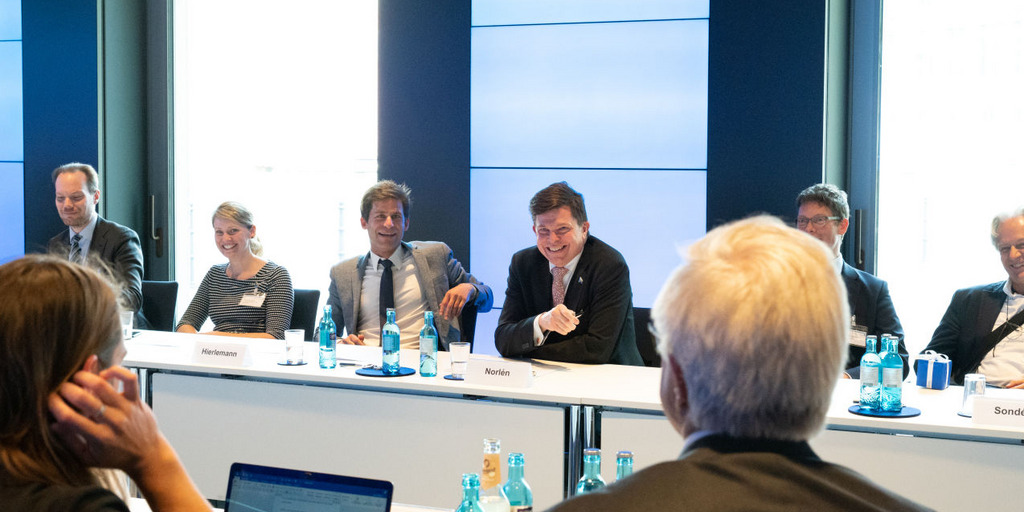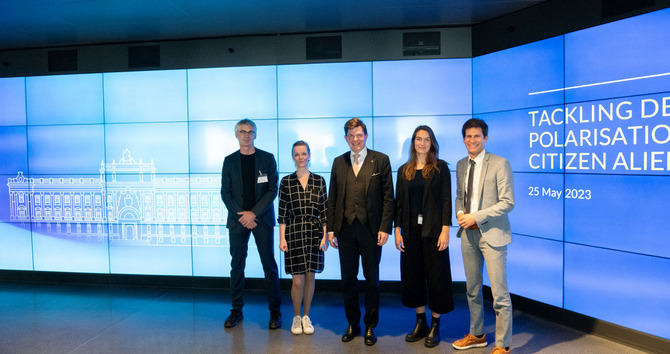Polarization, disinformation and citizen alienation are believed to destabilize democracies. But how exactly? Three invited panelists shared their thought-provoking takes on each problem and proposed solutions. The second wave of digitalization and the arrival of the AI could disrupt labour markets, push citizens out of jobs and further polarize democratic societies socially and politically, stated Prof. Dr. Jürgen Neyer. The solution is transnational - making the EU more socially-oriented and redistributive which requires a serious political reform of the EU. Disinformation quickly fills up the spaces left empty by uncertain, untransparent or slow-paced democratic politics, as assessed by Cathleen Berger from the BSt ‘Upgrade democracy’ project. To tackle this challenge democracies should break ‘defending against’ cycle and focus on generating trust in its core elements: media, politicians and democratic debate. Finally, sortition-based practices of citizen participation could make representative democratic systems more pluralistic and diverse, underlined Juliane Baruck, the leader of the Es geht los initiative.
Do democracies still have internal resources and powers to tackle these challenges? The round table revealed diverging opinions. Participants from civil society made strong cases for the use of concrete measures against the three discussed challenges: institutional mechanisms to prevent populists from entering mainstream politics, more channels for citizen participation and tighter rules for political advertising using personal data. The participants from the Swedish Parliament, in turn, stressed that the internal potential of democratic systems is far from being exhausted. Better quality policies create solid social and economic basis for democracy and bring better results than institutional change, be it nationally or via the reform of the EU. Political parties, in turn, function as great channels for citizens’ political engagement and generating trust between politicians and citizens. The Swedish experience shows that consensus politics between the main political parties is possible and works whereas investment in modernizing education, support of traditional media and governance transparency can keep disinformation at bay.
Tackling complex democracy challenges requires complex solutions. The project "New Democracy: Protecting and Rethinking Democracy" will keep exploring the nexus between innovative and proven solutions to making our democracies more resilient.





